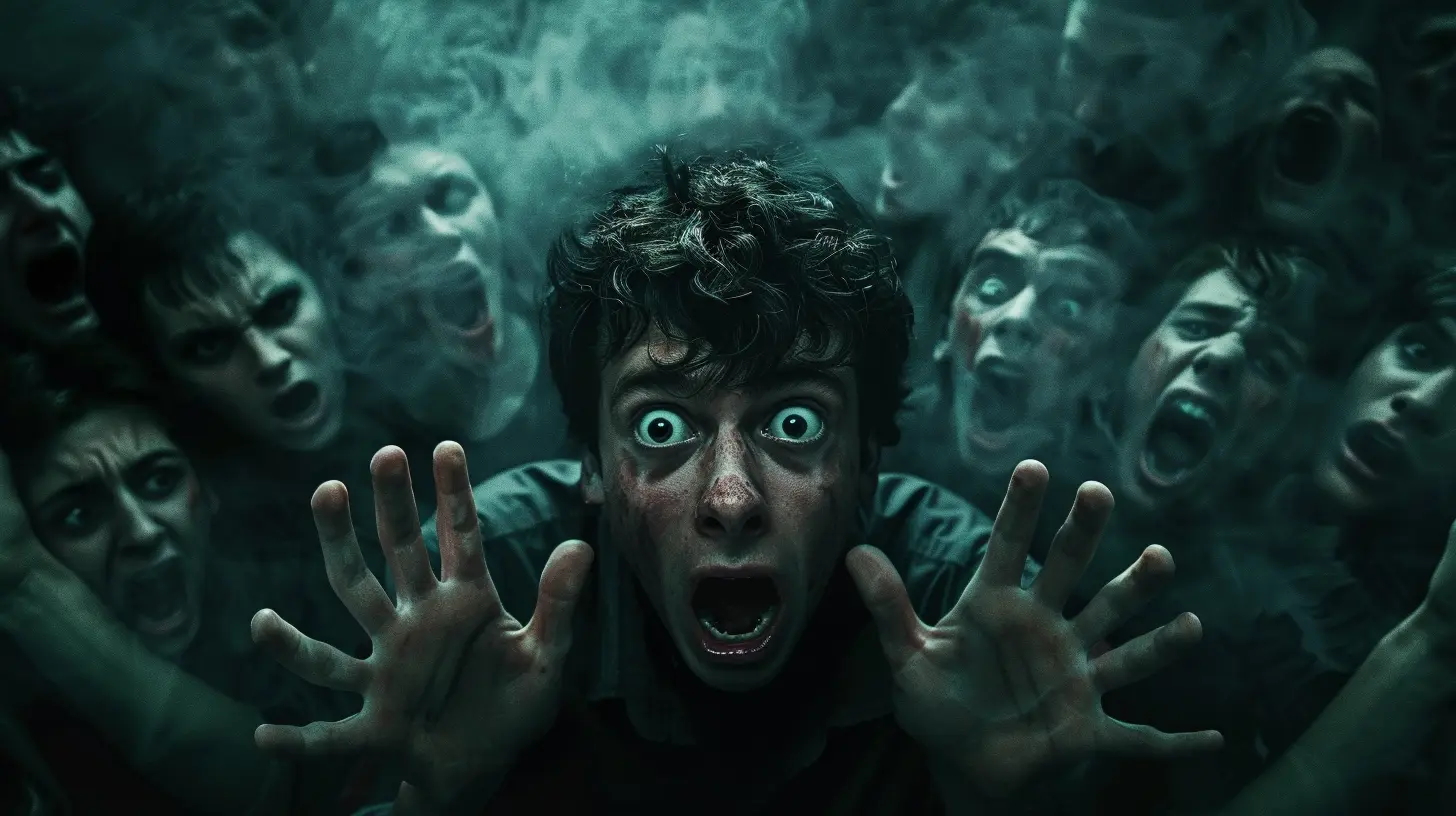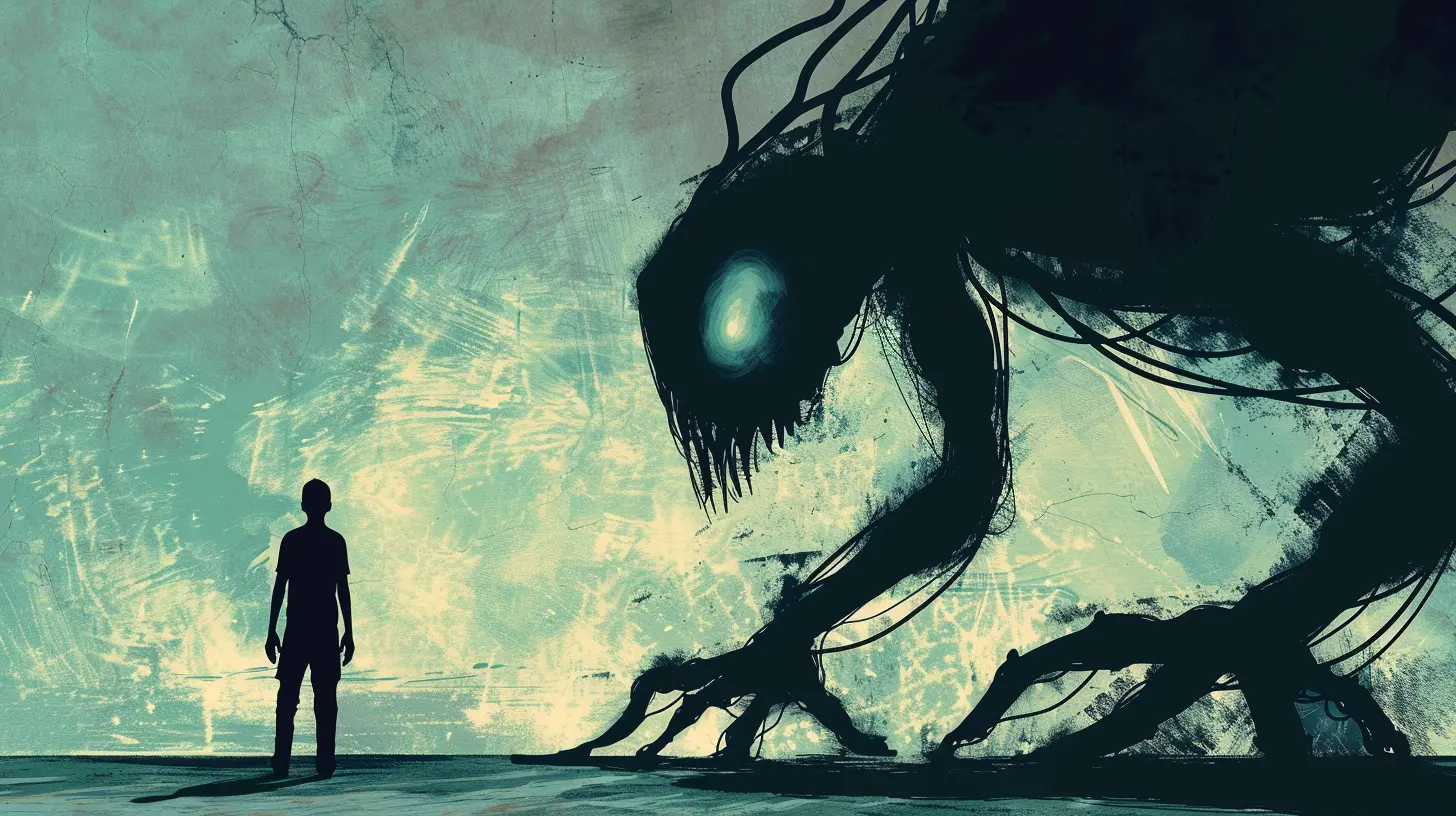How Fear Influences Our Social Interactions
4 October 2025
Have you ever held back from speaking up in a group because you were afraid you'd sound silly? Or avoided a party because you didn’t know anyone and feared feeling awkward? If you nodded your head even slightly, congratulations—you’re human. Fear plays a big role in how we navigate social situations. It's not just about being "shy" or "introverted." Fear is wired into us. But how exactly does it shape our relationships, our conversations, and our decision to connect (or not) with others?
Let’s get real about fear and social interactions—why it pops up, what it does to us, and how we can make peace with it.
What Is Social Fear, Really?
Before we dive deep, let’s get on the same page. Social fear, also called social anxiety or relational fear, isn’t always extreme or diagnosable. It can range from a mild worry about first impressions to a paralyzing fear of rejection or embarrassment.At its core, this fear is emotional discomfort triggered by how we think others perceive us. It's rooted in our survival instincts. Back in the day, being part of the group meant protection. Rejection could literally mean death. So, it makes sense our brains still freak out a bit when we feel socially judged.
But here's the twist: That same fear, while it kept us alive generations ago, can now hold us back from forming meaningful connections.
The Science Behind Fear in Social Settings
Our brain is a complex machine, but when it comes to fear, the amygdala is the main character. This little almond-shaped part lights up when we sense danger—yes, even social danger.When you fear being judged, embarrassed, or excluded, your amygdala fires up like there’s a lion in the room. Your heart races, palms sweat, and your mind starts coming up with escape plans. That’s your "fight or flight" mode kicking in… but instead of running from a tiger, you’re considering ghosting a brunch invite.
On a chemical level, fear releases cortisol and adrenaline—stress hormones that prepare you for danger. But too much of these in a social setting can make us freeze, overthink, or even misinterpret smiles as sneers. Not exactly the recipe for successful human connection.
Common Ways Fear Shapes Social Behavior
Now let’s break down how fear sneaks into our everyday interactions. You might recognize some of these patterns in yourself (or others):1. Avoidance
Probably the most obvious effect of fear. If you’re afraid of being judged, you might avoid public speaking. If you fear rejection, maybe you never ask your crush out. It’s like social fear comes with a giant “nuh uh, not today” sign that blocks new experiences.2. People-Pleasing
You say "yes" when you'd rather say "no." Why? Because you fear conflict or disapproval. Fear pushes you to keep the peace even when it's at your own expense.3. Overanalyzing Conversations
Ever replayed a convo in your head 100 times just to convince yourself you didn’t sound dumb? That's fear fueling your inner critic.4. Social Withdrawal
This one’s sneaky. You might not even realize you're pulling back from relationships until loneliness creeps in. But often, fear is behind that retreat—fear of vulnerability, confrontation, or emotional pain.5. Aggressive or Defensive Behavior
Interestingly, fear doesn’t always make us quiet. Sometimes, it shows up as irritation or hostility—a shield to protect your ego, especially in competitive or high-pressure environments.
Fear of Rejection: The Ultimate Social Monster
If we’re naming the biggest culprit, rejection would wear the crown and probably hold the scepter too.Humans hate rejection. Not just emotionally, but neurologically. Studies have shown that social rejection activates the same pain centers in the brain as physical injury. That explains why being ghosted can feel like a gut punch.
Because of this, we often:
- Play it safe in conversations
- Stick to familiar circles
- Avoid expressing differing opinions
- Downplay or hide parts of our identity
Ironically, in trying to protect ourselves from rejection, we end up feeling more isolated.
Fear and First Impressions
First impressions are tricky. You want to be yourself, but fear whispers, “What if they don’t like you?” So, you wear a mask—act chill, funny, smart—or whatever you think the situation demands.But masks get heavy, don’t they? Pretending costs emotional energy. And eventually, it feels like no one really knows you. That’s fear, again, blocking authentic relationships by convincing you that the real you isn't enough.
The Role of Social Media in Amplifying Fear
Ah, social media—the double-edged sword. On one hand, it connects us. On the other, it fuels our fears.By constantly comparing ourselves to curated versions of others, we start to fear missing out, not measuring up, or being judged for being different. We’re addicted to likes but afraid to post. We want to connect but fear being unfollowed.
Social media magnifies our social fears by putting our social worth on display. No likes? Maybe you’re not interesting enough. A mean comment? Queue the overthinking spiral. It's fear, now powered by wi-fi.
Fear in Romantic Relationships
Relationships should be safe, right? But fear often sneaks in, even when love is present.You might fear:
- Saying "I love you" first
- Asking for what you need
- Being vulnerable about past pain
- Expressing jealousy or insecurity
These fears can create emotional distance. Partners misunderstand each other, and the relationship may suffer not because love isn’t there, but because fear builds walls where there should be bridges.
How Fear Impacts Friendships
In friendships, fear often shows up as passive-aggressiveness or silence. Maybe you're afraid to confront a friend who's hurt you. Maybe you’re scared they'll leave if you open up about your struggles.Instead of addressing things head-on, we bottle it up. But like a shaken soda can, that pressure eventually explodes—sometimes pushing people away for good.
Navigating Fear in Workplace Dynamics
Professional environments are another breeding ground for social fear.Fear of speaking up, fear of asking for a raise, fear of failure, fear of not being "good enough"—these all impact how you show up at work.
When fear dominates our professional interactions, we might:
- Avoid giving honest feedback
- Hesitate to pitch ideas
- Overcommit to avoid disappointing anyone
- Downplay accomplishments
This limits not just individual growth, but also team dynamics and innovation.
So... What Can You Do About It?
Alright, enough doom and gloom. Here's the good news: Fear is normal. Expected, even. But it doesn’t have to rule your social world.Let’s talk about some practical ways to keep fear in check and connect better with others.
1. Acknowledge the Fear
Sounds basic, but naming your fear deflates its power. Say it out loud: “I’m scared of being rejected.” That’s the first step to owning it instead of letting it own you.2. Challenge Your Inner Narrator
Fear is a master storyteller—and not always a truthful one. If your brain says, “They’re all judging you,” ask: “Where’s the proof?” Nine times out of ten, it’s just assumptions.3. Practice Exposure in Small Doses
Start small. Talk to a stranger at a coffee shop. Speak up in a meeting. Share a personal story with a friend. Each tiny step builds confidence and proves that fear doesn’t have to win.4. Shift from Performance to Connection
Instead of focusing on impressing others, focus on connecting with them. People can sense authenticity. When you show up as yourself, others feel safe to do the same.5. Self-Compassion Is Key
Be kind to yourself. Fear doesn’t make you weak; it makes you human. Everyone’s afraid of something. But you’re not your fear—you’re just someone learning how to dance with it.Final Thoughts: Fear Isn’t the Enemy—Disconnection Is
Here’s the bottom line: Fear will always be around. But it doesn’t have to drive the car. Let it ride along as a passenger, sure—but don’t give it the keys.Our deepest connections come from vulnerability, not perfection. From honesty, not hiding. When you move through fear instead of around it, you open yourself to relationships that are rich, real, and deeply rewarding.
So the next time fear shows up in a social moment, take a breath, smile, and say, “Thanks for the warning, but I’ve got this.
all images in this post were generated using AI tools
Category:
Psychology Of FearAuthor:

Nina Reilly
Discussion
rate this article
1 comments
Halle Benson
Fear can be a powerful teacher; embrace it, learn from it, and watch how it transforms your social connections.
October 5, 2025 at 4:42 PM

Nina Reilly
Absolutely! Fear can deepen our connections by fostering empathy and understanding. Embracing it can lead to stronger relationships and personal growth.


